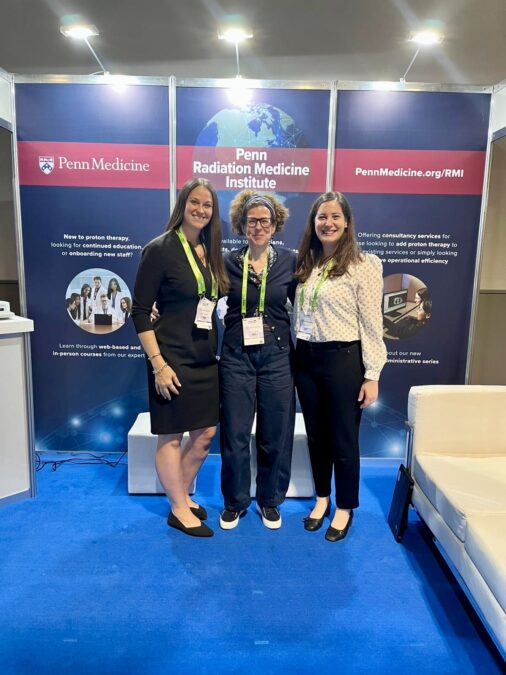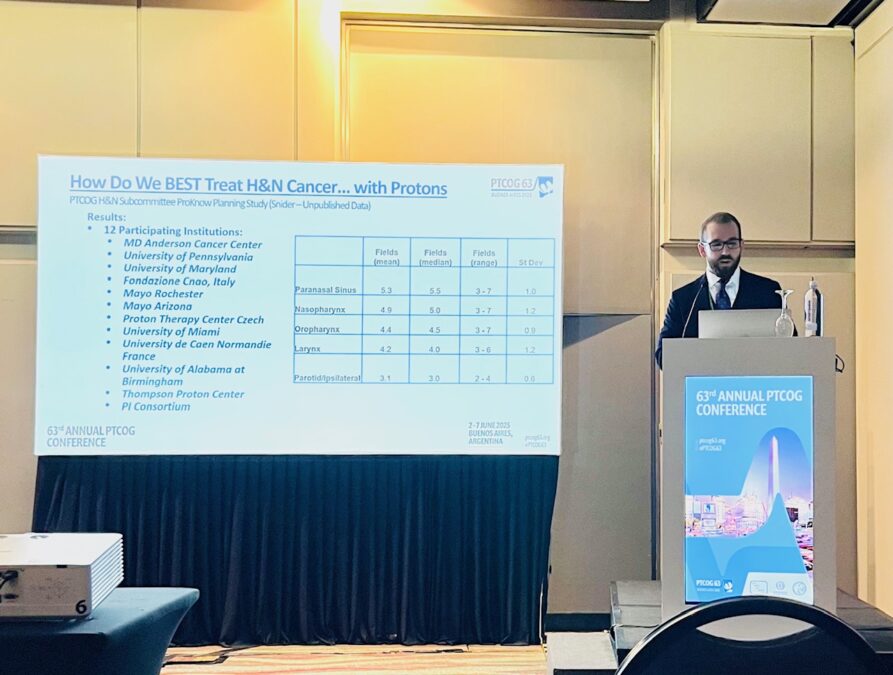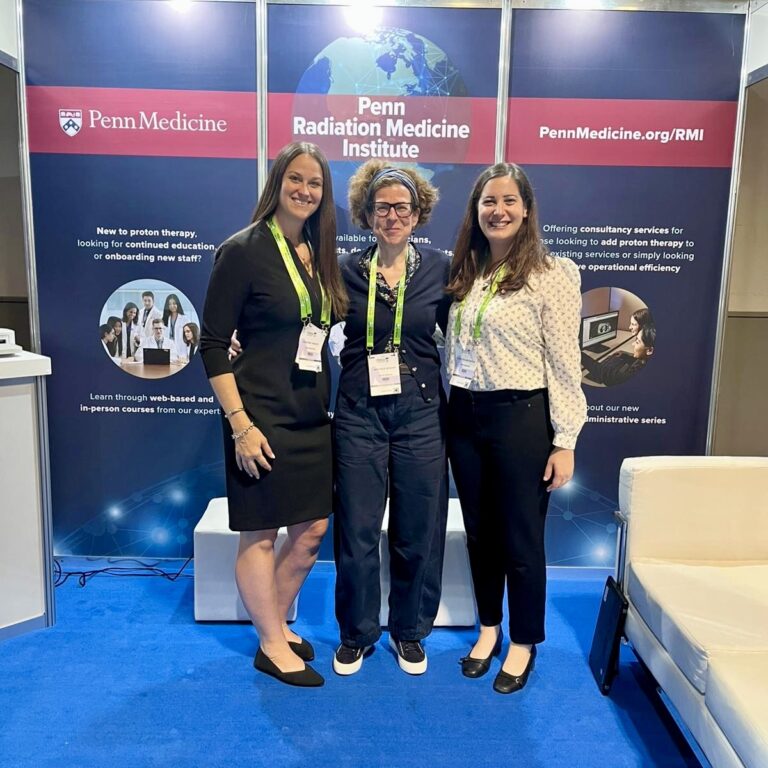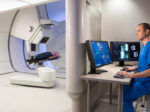Dr Beatrice Seddon, Medical Director and Consultant Clinical Oncologist at Proton International London, recently travelled to Buenos Aires to attend the 63rd Annual Meeting of the Particle Therapy Co-Operative Group (PTCOG).
The 63rd Annual PTCOG Conference (PTCOG 63), which took place from 2–7 June 2025 in Buenos Aires, Argentina, proved to be an engaging and inspiring event, bringing together leading experts in proton, light ion, and heavy charged particle radiotherapy. For clinicians and centres like ours, it offered a vital opportunity to contribute to the future of cancer care.

Driving global standards in Proton Beam Therapy for Head and Neck Cancer
At the Head and Neck Subcommittee meeting at PTCOG 63, Dr James William Snider, III, M.D., Chief Medical Officer at Proton International, LLC delivered a thought-provoking presentation on the future of proton beam therapy (PBT) planning.
Dr Snider shared findings from a multi-institutional comparative planning study involving five standardised head and neck cancer cases. These were independently planned by 12 expert proton therapy centres across Europe and the USA.
The results were striking: while all centres successfully achieved optimal tumour dosing, there was significant variation in the dose delivered to organs at risk. These results highlight the urgent need for more consistent, high-quality treatment planning. This is especially important as proton therapy becomes more widely available and clinical training expands globally.
To address this, Dr Snider will lead an international task force focused on developing consensus guidelines and practical planning tools for head and neck proton therapy.
Reflecting on his presentation and the wider significance of the conference, Dr Snider commented:
“Long-awaited Level I evidence has now demonstrated proton beam therapy as the preferred standard of care for most patients with head and neck cancer (Frank et al., JCO 2024; PTCOG 2025). The Phase III randomised trial comparing IMPT and IMRT for oropharyngeal cancer revealed a 10% increase in overall survival at five years, along with reductions in feeding tube dependence, decreased lymphopenia, and improved return-to-work outcomes.
As we enter a new era of proton beam therapy, expanding global access and ensuring excellence in Pencil Beam Scanning are critical. Our international planning study underscores the need for harmonised practice, even among expert centres. While consensus guidelines are an important first step, sustained expert support for new and developing proton centres — including input from physicians, dosimetrists, physicists, administrators, and RTTs — will be essential to delivering consistent, high-quality care.”

We’re proud to see Proton International at the forefront of these important global conversations, shaping the future of proton beam therapy through collaboration and shared expertise.
Collaboration that advances care
While at PTCOG, Dr Seddon also connected with colleagues from Penn Medicine Radiation Oncology, whose internationally respected training programme continues to support the development of our clinical team.
As the UK’s only private proton beam therapy centre, Proton International London in partnership with University College London Hospitals NHS Foundation Trust remains committed to delivering the highest standards of care.
Ongoing collaboration with global leaders such as Penn Medicine ensures that our patients benefit from expert-led, evidence-based treatment. Conferences like PTCOG are a vital part of that journey, driving research, setting new standards, and ultimately improving outcomes for people living with cancer.





